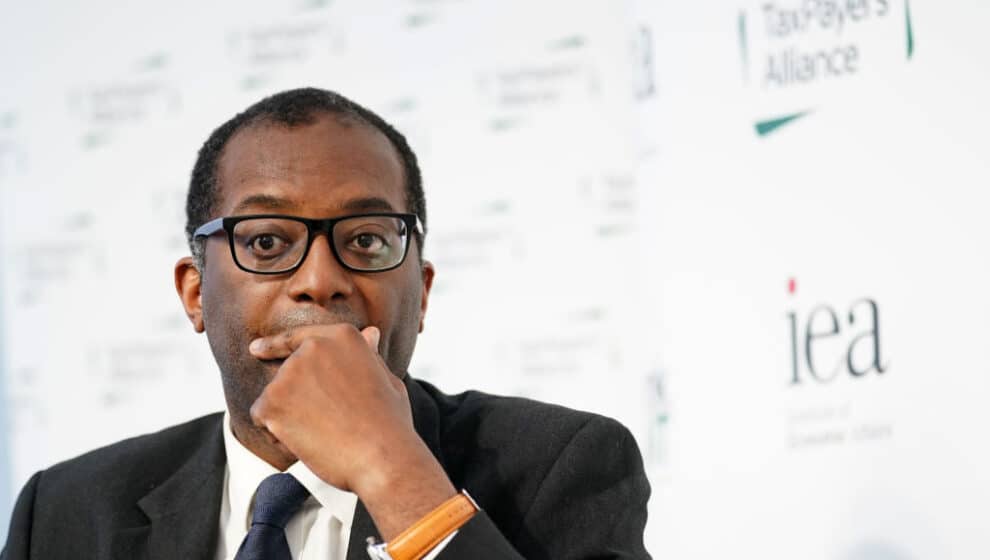Prime Minister Liz Truss fired U.K.’s treasury chief Kwasi Kwarteng—just weeks after they both took office
Key Details
- Following weeks of financial chaos, Truss fired Kwarteng early Friday after just six weeks of working together.
- “Mr. Kwarteng, who just three weeks ago presented the U.K.’s largest tax cuts since the 1970s, was asked to quit by Ms. Truss as markets balked at the scale of the borrowing required to fund the package and her lawmakers protested at the prospect of deep public-spending cuts,” says The Wall Street Journal.
- “It is important now as we move forward to emphasize your government’s commitment to fiscal discipline. The Medium-Term Fiscal Plan is crucial to this end and I look forward to supporting you and my successor to achieve that from the backbenches,” says Kwarteng.
- An IPSOS poll shows Truss only has 16% approval in the United Kingdom—a very low satisfaction rate given that she has only been in office since September.
- Former Health Secretary Jeremy Hunt has replaced Kwarteng.
Why it’s important
The firing is a major setback for Truss’s government, which has faced global scrutiny for her planned tax cuts. It is likely that the Tory government will see to it that she is replaced as Prime Minister.
Truss went as far as to scrap key elements of her planned mini-budget, saying it went further and had a worse effect than she expected.
“In a scramble to shore up support within her party, the embattled Ms. Truss also ditched her plan to prevent a planned rise in the rate of corporate income tax next April to 25% from 19%—a move taken by predecessor Boris Johnson’s government to help shore up finances,” says The Wall Street Journal.
“The focus in the U.K. will now turn to whether Ms. Truss, who won a Conservative Party leadership contest in September to replace Mr. Johnson on a pledge to cut taxes, will herself survive without her longtime political ally and with her project to revitalize the economy in tatters.”
Backing up a bit
As we previously reported, Truss’s mini-budget caused weeks of chaos and economic turmoil in which the Bank of England raised interest rates, the pound crashed, and bond prices crashed, forcing the bank to step in and calm the panic by printing $70 billion to buy them. She attempted to stay the course and weather the chaos until her planned speech in November.
“The turmoil in the U.K. is a sharp reminder of the political and economic challenges facing leaders across the West as they grapple with fast-rising inflation and weak growth,” says The Wall Street Journal.
The Bank of England may be forced to hike interest rates for the eighth time in 2022 next month.
Kwarteng faced previous criticism in September for attempting to remove the cap on banking bonuses in the U.K.

